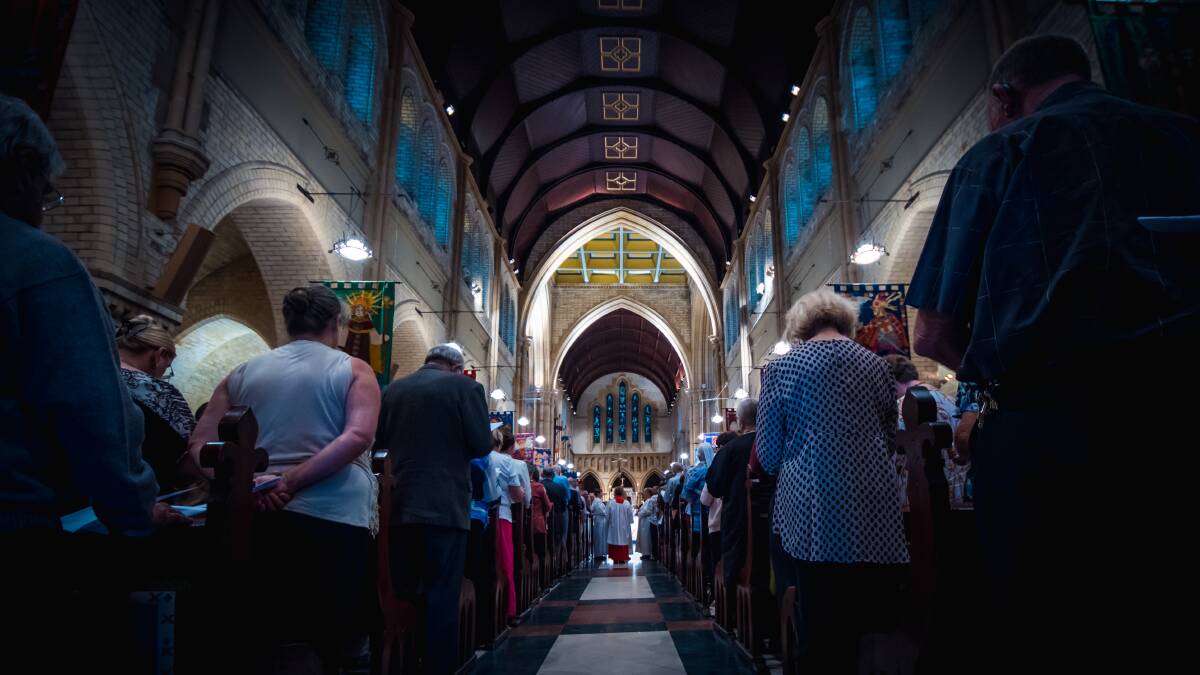
IT DOESN'T take much for people to see that the Archbishop of Sydney and the Bishop of Newcastle have strongly different views on some matters.
Subscribe now for unlimited access.
or signup to continue reading
The most significant and most public relates to how Anglicans might respond to LGBTIQA+ people and those who support them.
Both Glenn Davies (the Archbishop) and I value our personal relationship, but we would say that each other needs to reconsider their views.
Glenn's view is shared by a range of Christians and a significant group within the Anglican Church.
It is not the only view.
Whilst mine is regarded by some as a minority position in the Anglican Church of Australia, it reflects a growing movement in parts of Western non-Roman Catholic Christianity and in the wider community.
So, what are the majority of Newcastle Anglicans saying?
We're saying that the Bible remains an authoritative text for Anglicans. We must read and wrestle with it.
In the 16th century, Christians began embracing an alternative cosmology based on scientific discovery often promoted by the church.
In the 18th Century, Christians rejected, for the first time, slavery as an ordering of human society that is present in and tacitly approved by the scriptures.
In the 20th Century, they began moving away from the racism and sexism that some have interpreted from the scriptures.
There is within Anglicanism a theological approach called reception based on a story in the Acts of the Apostles.
It the idea that we can give space to an idea to see if it is holy and good.
Such an idea is regarded as provisional; understanding that it might later prove to be wrong.
Many ideas when received have been celebrated, embraced and integrated into Anglican Christian life.
When we come to consider human relationships and sexuality, we would no longer get a woman to drink a potion made from floor sweepings if her partner was jealous (as in the Book of Numbers) nor would we affirm a partner in a polygamous relationship being cast into the desert when another partner is jealous (Genesis).
Anglicans wrestled with the best response to polygamy for many decades.
If those parts of the bible can rightly be reframed by emerging understandings, can we not explore how the texts exploring aspects of male on male intercourse might be viewed?
The model of reception posits that it might be possible for two thought-forms to exist alongside each other for a period.
Many affirm the post-biblical framework where the beauty and grace of monogamous, faithful, life-long partnership is seen as promoting an integrated society.
Is it possible for a LGBTIQA+ integrity and a heterosexual integrity to coalesce?
One side says "no".
It sees some forms of sexual activity to be so grievous that without repentance that activity will lead to a person's eternal damnation, as with other sin.
Their challenge is about the dangerous eternal harm that is done when people fail to call others to proper repentance and celibacy.
The other side responds, a LGBTIQA+ person is that person because God made them that way.
Their identity refracts to us all something of God's likeness.
Our holy work is to call them to a full, authentic and integrated expression of that identity.
Glenn and I are put forward as representatives of theological standpoint. Both of us know and cherish straight and gay people; some of whom are at peace with the conversation and others who are deeply fearful.
My hope is for an Anglican Diocese and Anglican Church that can bear with the conversations for long enough that we discern a holy and right way forward.
My hope is that we can embrace and rejoice with difference along the way.
But I am not brimming with hope.
Glenn's diocese believes that decisions to allow women to preach to men are wrong.
They've overturned centuries of Anglican tradition in the way one of the most central features of church life (communion) is managed.
They resource and encourage a conservative resistance including interventions in other dioceses where there is support for marriage or blessing of same-sex relationships.
Some in their diocese call those who support change as "revisionists"; exploring what is said and written to find ecclesiastical charges.
Everyday I meet people who speak in tones of spiritual reflection but who feel harmed by the institutional church.
Among them are people who find the teachings of Jesus life changing.
I feel the deep call to speak about Jesus and his view of the world. I tell people that the simple command "love your enemies" has power to change the world and it begins in our difficult relationships.
The message of Jesus is life changing. As I hear it and teach it, I overflow with optimism.
I think the Anglican tent should be big enough to explore some competing ideas in a different way.

